|
Most orthodox Latter-day Saints, starting with the conclusion that their church is true, feel a compulsion to defend or rationalize everything it does, no matter how obviously sketchy or wrong. Of course they're not unique in this very human kind of bias - as I wrote the preceding sentence I was also reminded of Trump's sycophantic worshipers - but they're the demographic I'm most familiar with. As I drifted/got pushed to the fringes of the church I found this more and more frustrating. As I deconstructed my faith I realized I needed to look at it from exactly the opposite perspective and simply ask: would an organization led by Jesus Christ behave like this? The answer, all too often, was an obvious no. I didn't say always and I didn't say it never does anything good.
As an aside, I apply the same perspective to individual leaders. I don't want to be judgmental and I don't expect self-proclaimed representatives of Jesus Christ to be "perfect," but I do expect them to be good and to improve when they're not. I think it's exactly backwards to start with the conclusion that they're prophets and apostles, then defend and rationalize their behavior. If Brigham Young had been a leader in any other church or religion, most orthodox Latter-day Saints would easily dismiss him as a violent, racist lunatic, even if he had been normal by the standards of the nineteenth century, which he was not. But because he was a leader in their religion, they have to be like, "Haha, Brigham Young said some crazy stuff, but he sure was a great prophet." I also dismiss George Q. Cannon, J. Reuben Clark Jr., Mark E. Petersen, Bruce R. McConkie, Joseph Fielding Smith, Ezra Taft Benson, Boyd K. Packer, David A. Bednar, and Dallin H. Oaks for the awful things they've said and/or done. I'm not saying these men are pure evil or that they should burn in hell or anything, I'm just saying I don't think they're worthy or qualified to be looked up to for spiritual guidance. But instead of holding them to a minimum standard of decency, Latter-day Saints give them blanket amnesty without them ever having to apologize, make restitution, or admit they were wrong about anything like they teach the rest of us mere mortals to do. Kind of like police officers. So anyway, I've never been any more thrilled about the LDS Church's lack of financial transparency than its lack of historical transparency. It actually did used to report its finances in General Conference but it stopped when Henry D. Moyle drove it millions of dollars into debt with his overenthusiastic chapel-building program that he thought would magically create more baptisms. (The church did get a lot of baptisms during that era, but a lot fewer conversions.) So from the start, the lack of transparency was driven by the desire to hide information that made the church look bad. And the defense from members has always been the same: "The church isn't legally required to disclose its finances." No kidding. I just think that's a weird argument. Normal people don't base most of their life choices on what they're legally required to do or not. The church isn't legally required to help the poor either, but, you know, Jesus. I knew it was very wealthy but I was still pissed in late 2019 when a whistleblower leaked the existence of a fund containing at least $100 billion of untaxed income from member donations that was not being used for religious or humanitarian purposes. It was mostly being used for nothing, though the church had dipped into it to build the church's mall and bail out the church's insurance company. Ensign Peak is legally incorporated as a separate entity from the church, but I'm not going to worry about that distinction because as far as I'm concerned it is part of the church. It's controlled by the First Presidency and exists solely to further the church's aims. To respond to the first straw man that members invariably present, no, I'm not opposed to the church having funds saved away for emergencies or stock market fluctuations, but $100 billion is a freaking lot of money. I'm quite certain the people raising this defense have no grasp of just how much money it is. At first some said it was for the Second Coming, because you know, I'm sure money will be worth so much after Jesus burns civilization to the ground, and I'm sure he'll really need it. Then it was just a "rainy day" fund. As luck would have it, a "rainy day" came along not long after the fund was exposed. It was called Covid-19. The church could have put the fund to great use and really ramped up its humanitarian aid. It could have made vaccines available to everyone in the developing world. But it didn't. If that wasn't a rainy enough day to justify the fund's existence, then I'd like to know what the hell is. Are they waiting for the zombie apocalypose or the robot uprising? And of course if this scandal had happened to the Catholic Church, Latter-day Saints wouldn't have rationalized it, they would have seen it as proof that apostate Christianity is corrupt. (See also: sex abuse scandals) And now we know for a fact that it hasn't just crossed ethical boundaries, but also legal ones. The Securities Exchange Commission has fined the LDS Church $1 million and Ensign Peak $4 million - so as far as I'm concerned, it's fined the LDS Church $5 million - for creating thirteen shell companies, aka companies that for most intents and purposes don't exist, to hide $32 billion of stock holdings instead of filling out the required forms that would have disclosed Ensign Peak's (aka the LDS Church's) ownership of them to the government and the public. I don't claim to be an expert on the legal nuances, but that much is not up for debate. Here's the SEC's press release and its more detailed 9-page administrative filing. You don't have to be a math major to notice from the numbers there that the fine is laughably small and won't hurt the church at all. It's more about sending a message. Some other important details that contradict what some members who haven't looked into it are claiming: yes, the leaders of the church absolutely knew about this. Ensign Peak created the shell companies with the First Presidency's approval. It didn't have authority to do anything without the First Presidency's approval. And yes, they knew it was illegal. The church's own auditing department warned them about it twice, in 2014 and 2017, before getting up in General Conference and reading the same statement it reads every year about how everything is fine. But pretend for a moment that this wasn't illegal or that the church didn't realize it was illegal. Anyone can see that it was still dishonest. What was the entire purpose of creating these shell companies? To hide information. What was the purpose of that? I think we need look no further than a shockingly candid admission by Roger Clarke, the head of Ensign Peak, about why that entire fund was kept secret in the first place: "Paying tithing is more of a sense of commitment than it is the church needing the money. So they never wanted to be in a position where people felt like, you know, they shouldn’t make a contribution." He didn't say the church isn't legally obligated to be transparent about its finances, he said the church doesn't want members to know how rich it is because it doesn't want them to stop giving it money that it doesn't need. And somehow it also hasn't figured out yet that it can't cover up unflattering information forever, or that the resulting scandals make it look worse than if it had just been honest in the first place. I wonder how many more times it will publicly shoot itself in the foot before it learns. In General Conference in 1907, President Joseph F. Smith said, "Furthermore, I want to say to you, we may not be able to reach it right away, but we expect to see the day when we will not have to ask you for one dollar of donation for any purpose, except that which you volunteer to give of your own accord, because we will have tithes sufficient in the storehouse of the Lord to pay everything that is needful for the advancement of the kingdom of God. I want to live to see that day, if the Lord will spare my life. It does not make any difference, though, so far as that is concerned, whether I live or not. That is the true policy, the true purpose of the Lord in the management of the affairs of His Church." Guess what - that day has arrived. The LDS Church is rich enough to fund itself in perpetuity without ever taking another penny from members who can barely support their families. But it continues to require tithing anyway. I guess President Smith was just speaking as a man. I also take issue with those who defend tithing as a "voluntary donation" because it really isn't when members are taught from birth that God will separate them from their families forever if they don't pay it. The very least the church could do is be transparent about what it does with those donations. But it has literally broken the law to avoid doing that. The most right-wing members have more creative defenses. I saw someone insinuate that this is the government's fault because it persecuted the church over polygamy, so of course the church doesn't trust it and doesn't want to be honest with it. As an aside, the more I learn about polygamy the more I feel llike the government wasn't wrong to persecute the church. The Supreme Court compared it to human sacrifice, and that comparison was more apt than I could have imagined. But anyway, everyone involved in the government or the church at that time has been dead for quite a while. Get over it already. The funny thing is the same members who think this way probably also can't understand why Black people are still bothered by segregation. I've seen Kwaku El and others claim outright that churches shouldn't pay taxes so the church was justified in lying to the government and they only regret that it got caught. They're unhinged, but at least they're honest about supporting dishonesty. Of course the LDS Church provided its own spin in a statement written by its anonymous PR staff and not by the First Presidency, who authorized the illegal activity, because apparently the First Presidency only deigns to write statements about pointless crap like changing the name of tithing settlement to tithing declaration. The statement doesn't deny the church's wrongdoing - indeed, the church's settlement with the SEC prohibits it from doing so - but it does throw "legal counsel" under the bus and downplay the culpability of "senior leadership." And it contains this much-maligned gem in the Q&A section: "Q: Did Ensign Peak fail to comply with SEC regulations? A: We reached resolution with the SEC. We affirm our commitment to comply with the law, regret mistakes made, and now consider this matter closed." Yes, you read that right. The church asked itself a yes-or-no question and then refused to answer the question. I'm sorry, but does it have an actual fetish for making itself look bad? It literally could have just asked a different question. The PR staff should have consulted with Brad Wilcox - he always knows when people are asking the wrong questions. By the way, the honest and grammatically correct answer to the question is yes. Now I have another question: what do people do when they actually "regret mistakes made?" Hint: it rhymes with "shapologize." Anyway, this specific matter with Securities Exchange Commission may be closed, but Ensign Peak is still under investigation by the Internal Revenue Service and may also be investigated by the Senate Finance Committee. So as far as I'm concerned, the LDS Church is under investigation by the Internal Revenue Service and may also be investigated by the Senate Finance Committee. I want my tithing back. To current members, if any have read this far, I say this is wrong, you know it's wrong, and you know that you're wrong if you ignore it or contort yourself into pretzels to pretend it's okay. Your moral compass should not revolve around the church always having to be right. Hold your leaders accountable for breaking the law and lying to you. Well-deserved memes:
0 Comments
I recently read about another near-death experience in another book that I picked up at my old job and had laying around for years, Betty J. Eadie's Embraced By The Light. She describes Jesus like so:
"I saw that the light immediately around him was golden, as if his whole body had a golden halo around it, and I could see that the golden halo burst out from around him and spread into a brilliant, magnificent whiteness that extended out for some distance. I felt his light blending into mine, literally, and I felt my light being drawn to his. It was as if there were two lamps in a room, both shining, their light merging together. It's hard to tell where one light ends and the other begins; they just become one light. Although his light was much brighter than my own, I was aware that my light, too, illuminated us. And as our lights merged, I felt as if I had stepped into his countenance, and I felt an utter explosion of love. "It was the most unconditional love I have ever felt, and as I saw his arms open to receive me I went to him and received his complete embrace and said over and over, 'I'm home. I'm home. I'm finally home.' I felt his enormous spirit and knew that I had always been a part of him, that in reality I had never been away from him. And I knew that I was worthy to be with him, to embrace him. I knew that he was aware of all my sins and faults, but that they didn't matter right now. He just wanted to hold me and share his love with me, and I wanted to share mine with him. "There was no questioning who he was. I knew that he was my Savior, and friend, and God. He was Jesus Christ, who had always loved me, even when I thought he hated me. He was life itself, love itself, and his love gave me a fullness of joy, even to overflowing. I knew that I had known him from the beginning, from long before my earth life, because my spirit remembered him." Yes, long before her earth life. Although Eadie claims her religious training as Catholic and then Wesleyan Methodist, much of her description of the spirit world matches LDS theology perfectly, to the point that while reading it I experienced cognitive dissonance. LDS theology about the spirit world made a lot of sense to me and was one reason I found it so hard to admit that the LDS Church isn't true. And I knew it still couldn't be true even if this account was accurate. But very little of LDS theology was actually original to Joseph Smith - this has become so obvious that one of the church's leading faithful scholars, Terryl Givens, calls him an "inspired syncretist," which of course would have drawn blank stares if anyone had said it in a Sunday school while I was growing up - so maybe, despite being a charlatan, he'd managed to get a lot of it right. Then I read a mention of "seeking further knowledge" or something like that, and it was the final straw. No freaking way this woman wasn't LDS when she wrote this book. I'd been waiting until I finished the book so I didn't bias myself, but now I had to look her up. It turns out that, despite never seeing fit to mention it in the book, Eadie was an inactive Latter-day Saint at the time of her near-death experience in 1973, and she became more active afterward. She shared her story for a while and eventually wrote a 16-page synopsis that caught the attention of an LDS editor named Curtis Taylor who thought it would make a good book. He bought the rights and basically ghostwrote the synopsis into the 147-page book that was first published in 1992. So I think that explains a lot. The book was wildly popular but drew some scathing reviews from both evangelicals, who accused her of deceiving Christians with LDS theology without disclosing her LDS background, and other Latter-day Saints who didn't like the book's New Age-y elements (which she doubled down on in the sequel) and accused her of failing to promote the church by not disclosing her LDS background. Apostle Boyd Packer allegedly told a stake priesthood meeting that the book was "bunk." I was born at just the right time to miss all the hype and controversy. The New Age stuff was weird, but plenty of Latter-day Saints believe it. Lots of LDS women are into "energy healing," probably because it gives them power that's denied them in the all-male LDS priesthood hierarchy. There were only a couple of interesting points where I felt like the book actually contradicted LDS teachings. First, when Eadie dies, she says, "My first impression was that I was free.... My sense of freedom was limitless and it seemed as if I had done this forever." When she returns to her body, she says it "looked cold and heavy and reminded me of an old pair of coveralls that had been dragged through mud and grime. In comparison, I felt like I had just taken a long, soothing shower, and now I had to put that heavy, cold, muddy garment on.... The body's cumbersome weight and coldness were abhorrent. I started jerking around inside it as though many volts of electricity were pulsing through me. I felt the pain and sickness of my body again, and I became inconsolably depressed. After the joy of spiritual freedom, I had become a prisoner to the flesh again." This is the opposite of the LDS teaching that having a body is super awesome and dead people hate being separated from their bodies. While talking to Jesus, Eadie says, "I wanted to know why there were so many churches in the world. Why didn't God give us only one church, one pure religion? The answer came to me with the purest of understanding. Each of us, I was told, is at a different level of spiritual development and understanding. Each person is therefore prepared for a different level of spiritual knowledge. All religions upon the earth are necessary because there are people who need what they teach. People in one religion may not have a complete understanding of the Lord's gospel and never will have while in that religion. But that religion is used as a stepping stone to further knowledge. Each church fulfills spiritual needs that perhaps others cannot fill. No one church can fulfill everybody's needs at every level. As an individual raises his level of understanding about God and his own eternal progress, he might feel discontented with the teachings of his present church and seek a different philosophy or religion to fill that void. When this occurs he has reached another level of understanding and will long for further truth and knowledge, and for another opportunity to grow. And at every step of the way, these new opportunities to learn will be given." This is a sentiment I can get behind, especially the part where my discontent with the LDS Church means that I've reached another level of understanding. Just call me Mr. Enlightened. An orthodox Latter-day Saint could almost agree with it, except they would have to be adamant that God did give us only one (true) church, and they would take offense at the (demonstrably true) claim that it can't fulfill everybody's needs at every level. I do disagree with her when she goes on to say, "Having received this knowledge, I knew that we have no right to criticize any church or religion in any way." For all the good that churches or religions do, they also harm a lot of people, and I don't believe they have a right to hide behind tolerance or the sanctity of personal belief to escape being called out on it. On that note, I wish American liberals had the cajones to criticize Islam's misogyny and homophobia like they do Christianity's. Eadie also seems to contradict herself a little by stressing the importance of agency (one of the LDS red flags) but also claiming that nearly everything that happens in our lives was planned and chosen before we were born. In the past, I've refuted the annoying cliche "Everything happens for a reason" by pointing out how ludicrous it is to imply that God foreordained someone to be a drunk driver. Yet Eadie feels different: "A person may have chosen to die, for example, by stepping into the street and being hit by a drunk driver. This seems terrible to us, but within the pure knowledge of God, his spirit knew that he was actually saving this driver more grief later. The driver may have been drunk again a week later and hit a group of teenagers, maiming them or causing greater pain and misery than was necessary, but he was prevented because he was spending time in jail for hitting the person who had already completed his purpose on earth. In the eternal perspective, unnecessary pain was spared for the young people, and a growing experience may have begun for the driver." Hmm... okay. Anyway, it's an interesting book and I need to read more about near-death experiences, but I think I've read enough to give up on any hope that they present a consistent and factually accurate description of the afterlife. They have many common elements but they also have many contradictory elements, and people who don't already believe in Jesus don't meet Jesus. So the mystery remains. How disappointing. I don't often go to LDS meetings or devotionals anymore, but I went to one Friday night because I was really bored and lonely and it was hosting Madilyn Paige, a moderately successful singer of whom I had heard. She sang some songs and gave some good motivational speaking and showed some cute videos of herself singing as a child, including one where a sibling was saying, "Stop, stop, please, stop, stop." I feel the same about my roommate's singing, but even at that age, hers was actually good. Toward the end of the devotional she touched on something that's become almost obligatory to acknowledge in these settings: faith crisis. She said she's had doubts and she still has questions and it seems like people are stepping away from the church more than ever these days. She said she's thought about what if she gets to the end and it's all made up, but she can't deny what she's felt. And I mentally rolled my eyes at that and then I chastened myself for being judgmental because I was in the same position not long ago. Well, almost the same position. I was never famous or pretty or good at singing. Because of what I felt within the context of the LDS Church - not often, but often enough - I thought for years that I was doing the right and intellectually honest thing by trying to rationalize or defend every issue with the predetermined conclusion that the church is what it claims to be, and by fighting to hold onto my faith at all costs long after I should have known better. I thought that if I just held on a little longer, everything would fall into place and make sense and the church would stop letting me down. After I had to accept that that wasn't going to happen and the church isn't what it claims to be, I clung to the hope that God still had some important divine purpose for it besides opposing social progress. After that hypothesis failed, I clung to the possibility that, as David Whitmer explained at length in "An Address to All Believers in Christ" (which should be required reading for all Latter-day Saints), the Book of Mormon was true and Joseph Smith started out as a true prophet but the LDS Church fell into apostasy almost immediately when he overstepped his boundaries. I didn't want to believe that I'd wasted so much time and energy defending pure fiction. But that's just how life goes sometimes. Jeffrey R. Holland recently shared this big steaming pile of desperation in a devotional that I'm not sorry I didn't watch: "Real faith - life-changing faith, Abrahamic faith - is always in crisis. That’s how you find out if it’s faith at all. I promise you that more faith will mean less crisis until, finally, God says, 'Well done, thou good and faithful servant.'" Faith is always in crisis, but more faith means less crisis. (With this statement he broke his own previous speed record for contradicting himself, set in 2012 when he lied to a BBC reporter about the pre-1990 endowment penalties before conceding their existence seconds later.) I was never taught anything remotely like this when I grew up in the church, and of course it's not being taught now because it makes any kind of sense but only because none of the church hierarchy's previous attempts at damage control have worked. So now they're trying to rebrand constant cognitive dissonance as proof that the church is true. I did think for a while that I was passing an Abrahamic test, but when it didn't end and didn't end and didn't end, I decided that life is too short to put up with that crap indefinitely. I don't deny that I felt feelings at times while I was in the church. I don't know what to make of those feelings now because all I have are memories of them, and memory is unreliable in part because it's filtered through my current knowledge and perspective. And of course I have no idea what Madilyn Paige has felt. But I know there have been people in every religion, including suicide cults, who have felt equally confident that their religion was the correct one. I don't know that this is common. The LDS Church places more emphasis than most on personal revelation (although it also teaches that any personal revelation that doesn't conform with its teachings is, ipso facto, invalid), and many, maybe most people just go through the motions in whatever religion they're born into unless and until they have a compelling reason to really think about it. But at least some people in every religion have feelings they can't deny. And then, if they so desire, they can find apologetics and scholarship to back up their predetermined conclusion that their religion is true, and they can reassure themselves that their testimony is based in logic as well as feelings, even though there's almost a 0% chance that they've actually held their religion to the same standard as all other religions. For example, LDS apologists make rationalizations for their prophets' and apostles' words and actions that they would never make for anyone else who claimed to represent God. This is the infamous video that brought me to that soul-crushing realization. It's a compilation of people bearing emotional testimonies that their various religions, including suicide cults, are true. By that time I had been out of the church for over a month, but it severely shook my confidence in God himself and I haven't recovered. I found it through FAIR. And I'm not being snarky for once, but I legitimately couldn't even understand what FAIR was trying to say in its lengthy and convoluted response. I thought the restored gospel of Jesus Christ was supposed to be beautifully simple. I thought we had personal revelation so we didn't have to get bogged down in philosophy. So I no longer believe that feelings are a reliable guide to truth. Now I may, of course, end up having to give up on God entirely, but I'm not ready to do that yet. I still believe in him not so much because of what I've felt but because of philosophical arguments and experiences that I don't believe can reasonably be attributed to coincidence or confirmation bias. And I don't believe he cares what religion I belong to or don't belong to as long as I do my best to love others and be a positive influence in their lives. Maybe he did tell some of the people in the video to be part of the religions where they could do the most good. Having recently watched it again after thinking about it for months, I tentatively think that strong feelings, like ones that bring people to tears, are a red flag. I think the teaching that God speaks in a "still small voice" is onto something. And I think certainty is an even bigger red flag. Faith is faith. It is not and never will be certainty. A lot of people in this video think it is, and every month Latter-day Saints reinforce their beliefs by standing up in their echo chambers and proclaiming "I know this church is true" when they actually don't. I think certainty stifles growth and defeats whatever purposes God may have for not showing his face to the world and telling everyone exactly what to do and what to believe. I don't know what Madilyn Paige's questions are. I'm going to take a wild guess that one of them is why "God" creates gay people and then commands them to stay alone until they die. The world of LDS musicians is a small one, and I'd be surprised if she wasn't personally acquainted with David Archuleta, who left the church because its teachings about his sexuality made him hate himself and contemplate suicide. The answer to this question that I came up with is very simple: God has nothing to do with it, but the church is run by old straight men who think gay sex is gross. Another question she may have is why "God" denies women like herself the opportunities and privileges in the church and in society that men have. My answer is very simple: God has nothing to do with it, but the church is run by old male men who think women are baby factories. Maybe she wants to know why "God" banned black people from the priesthood and the temple for 126 years. My answer is very simple: God had nothing to do with it, but the church was run by old white men who thought black people were inferior to them. Latter-day Saints - including myself when I was one - make these questions out to be more complicated than they are because they can't accept the logical and straightforward answers that don't involve the church being what it claims to be. I bet I could answer all of Madilyn Paige's questions, but she wouldn't like the answers. And that's fair. I wasn't ready to accept them at her age either, and if she's happy where she's at, I wouldn't want to take that away from her anyway. I wouldn't bother arguing against the LDS Church's truth claims at all if it didn't harm people I love. And I don't think she's the type to use her beliefs to harm people. She's been a more positive influence in the world than I've been. Here's a nice uplifting song she did. If God is all good and all loving, it must be pure constant agony for him to restrain himself from snapping his fingers and erasing men like Vladimir Putin and Ali Khamenei from the face of the Earth. I'm neither all good nor all loving but I wouldn't be able to restrain myself for a millisecond if I had that kind of power. It drives me out of my fucking mind to be powerless while these demons on the other side of the world are destroying millions of lives with impunity. I don't deny, of course, that God may have perfectly valid reasons for not stopping them, like agency and whatever, but I certainly can't be expected to believe this is the same being who struck people dead for touching the Ark of the Covenant and turned them into pillars of salt for I don't even know why. I'm not ready to give up on God yet. I hope all the people who have given up their lives so other people can have basic human rights someday have gone home to him, and I hope he's treating them really well to compensate for having been oppressed, tortured, raped, beaten into comas, etc. I hope they didn't just cease to exist when they were murdered by Russian soldiers or Islamic terrorists. Reminder that by installing the Snowflake browser extension, you can help Iranian revolutionaries and other oppressed people circumvent government censorship. Here are some pictures I found on r/NewIran that I think are superior to whatever impotent words I might otherwise churn out. I like this one because it works on multiple levels. I hope the artist doesn't get murdered. These girls' regime-sucking parents made them do this PR stunt that very few people in the world are stupid enough to buy... First I think this one is beautiful, and then I think I must be really sick for thinking that. It's not beautiful that these women had their eyes shot out by Islamic terrorists for demanding basic human rights to which they are entitled by birth, but their indomitable spirits really show in this picture. And those indomitable spirits are why the Islamic Republic is boned. I just wish I could be a part of that, damn it. Then I saw this last night. I don't know much about Iranian politics except that the Islamic Republic is a blister on Satan's testicles, but Reza Pahlavi is the Crown Prince who would be in charge right now if the Islamic Republic hadn't come to power, and he's emerging as a de facto figurehead for the current revolution. Of course not all Iranian revolutionaries like or support him but the general consensus is that they should send Khamenei back to hell now and worry about their differences later. Anyway, I don't know if any rallies or marches will happen in Logan, Utah, which has few Iranian expatriates, but I will certainly participate if I become aware of any. I considered stepping way out of my comfort zone and trying to start some but I don't think that's my place and I don't think it would be any more successful than my previous attempts to make a difference in the world. ...because it's impossible to hide the truth.
|
"Guys. Chris's blog is the stuff of legends. If you’re ever looking for a good read, check this out!"
- Amelia Whitlock "I don't know how well you know Christopher Randall Nicholson, but... he's trolling. You should read his blog. It's delightful." - David Young About the AuthorC. Randall Nicholson is a white cisgender Christian male, so you can hate him without guilt, but he's also autistic and asexual, so you can't, unless you're an anti-vaxxer, in which case the feeling is mutual. This blog is where he periodically rants about life, the universe, and/or everything. Archives
July 2024
Categories
All
|
- Home
- Blog
-
My Literary Works
- Comics by C. Randall Nicholson >
-
Short Stories by C. Randall Nicholson
>
- Childish Stories
- My Dearest Catherine
- It's Really Cold Out There
- Walter Mitty - The Sixth Daydream
- Jesus is a Liberal
- El Coronel - Epílogo
- A Couple of Very Cynical Parables
- Interview with the Ruler of the World (Me)
- The Star Wars Missionary
- Chelise
- Traumfrau
- All Hands on Deck
- It Ain't Ogre Till It's Ogre
- Black Tom: The Unauthorized Encore
- Brittany and the Bear
- Lunatics: A Space Girls Story
- Adventures in the FDR >
- Poems and Songs by C. Randall Nicholson >
-
Essays by C. Randall Nicholson
>
- Childish Essays by C. Randall Nicholson
- Los Braceros
- The Great Pacific Garbage Patch
- The Witches of "Macbeth"
- Evita
- The Second Amendment to the Constitution: Why it is Important to Our Nation
- USU Honors Program Application Essay
- The Giraffe Deception
- Member Missionary Message
- I'm Just a Little Unwell: Coping with Asperger's Syndrome
- Dating Seminar
- An Open Letter to Critics of The Church of Jesus Christ of Latter-day Saints
- How Can any Intelligent Person Be a Mormon?
- Faith and Doubt in My Life
- Discarding Dated Dinosaur Dogmas: Robert T. Bakker and the Dinosaur Renaissance
- Religion, Science, and Art: Elements of the Gospel of Truth
- Why Latter-day Saints Should Embrace Evolution
- Daoism
- Spiritual Autobiography
- From the East: Hinduism and Islam as Compared to My Western Faith Tradition through Poetry
- In Defense of Pickup Lines
- Ass Burgers
- Chasing Kelsey
- Both of the Things Wrong with Charlotte Temple
- Sir Thomas More's Critiques and Commendations for Catholicism
- The Legend of Christor
- How Eugene England Helped Me Transform My Testimony
- Graduate School Statement of Intent
- "Please Join with Us Now in Common Purpose": A Discourse Analysis
- Legos and Gender
- Things That Rhyme with "Elise"
- I Want to Believe: The Persistence of Alien Folklore
-
Reviews by C. Randall Nicholson
>
- Review of "Howard the Duck"
- Review of "Letter to a Christian Nation"
- Review of the LDS Institute's "Uncommon Hour"
- Review of "Madagascar 3"
- Review of "Dating Doctor David Coleman"
- Review of "David and the Magic Pearl"
- Review of the "Mata Nui Online Game (MNOG)"
- Review of "Evolution and Mormonism"
- Review of "Callahan's Crosstime Saloon" (Game)
- Review of "Modern Romance"
- Review of "Solo: A Star Wars Story"
- Review of "The Legend of Zelda: Ocarina of Time"
- Review of "The Book of Mormon" (Musical)
- Review of Jenson Books
- Review of "Live Not By Lies"
-
Literary Fragments by C. Randall Nicholson
>
- Childish Scraps
- The Adventures of Nichch Bror
- Reaching (for the Stars)
- Boys vs. Girls Book 1: The Conflict >
- Dave is a Square
- Star Wreck
-
The Legend of Aaron LaBarr
>
- 1 Marauders of the Mythical Man Chapter One
- 1 Marauders of the Mythical Man Chapter Two
- 1 Marauders of the Mythical Man Chapter Three (Unfinished)
- 1 Marauders of the Mythical Man Chapter Four (Unfinished)
- 2 Crusaders of the Crystalline Chronostone Chapter One (Unfinished)
- 2 Crusaders of the Crystalline Chronostone Chapter Two (Unfinished)
- 2 Crusaders of the Crystalline Chronostone Chapter Three (Unfinished)
- 2 Crusaders of the Crystalline Chronostone Miscellaneous
- 3 Pursuers of the Priceless Power Chapter Two (Unfinished)
- The War >
- The Space Detective
- Skin Deep
- The Sword of Laban >
- LDS Church History Timeline
- Jennifer and Lance
- Logan YSA 36th Ward 2018 History
- Unsent Correspondence by C. Randall Nicholson
- Correspondence Regarding the Worst Day of My Life So Far
-
Indiana Jones and the Saucer Men from Mars
>
- Indiana Jones and the Saucer Men from Mars - Prologue
- Indiana Jones and the Saucer Men from Mars - Chapter One
- Indiana Jones and the Saucer Men from Mars - Chapter Two
- Indiana Jones and the Saucer Men from Mars - Chapter Three
- Indiana Jones and the Saucer Men from Mars - Chapter Four
- Indiana Jones and the Saucer Men from Mars - Chapter Five
- Indiana Jones and the Saucer Men from Mars - Chapter Six
- Indiana Jones and the Saucer Men from Mars - Chapter Seven
- Indiana Jones and the Saucer Men from Mars - Chapter Eight
- Indiana Jones and the Saucer Men from Mars - Chapter Nine
- Indiana Jones and the Saucer Men from Mars - Chapter Ten
- Indiana Jones and the Saucer Men from Mars - Chapter Eleven
- Indiana Jones and the Saucer Men from Mars - Chapter Twelve
- Indiana Jones and the Saucer Men from Mars - Chapter Thirteen
- Indiana Jones and the Saucer Men from Mars - Epilogue
- Behind the Scenes of "Indiana Jones and the Saucer Men from Mars"
-
Indiana Jones and the Monkey King
>
- Indiana Jones and the Monkey King - Prologue
- Indiana Jones and the Monkey King - Chapter One
- Indiana Jones and the Monkey King - Chapter Two
- Indiana Jones and the Monkey King - Chapter Three
- Indiana Jones and the Monkey King - Chapter Four
- Indiana Jones and the Monkey King - Chapter Five
- Indiana Jones and the Monkey King - Chapter Six
- Indiana Jones and the Monkey King - Chapter Seven
- Indiana Jones and the Monkey King - Chapter Eight
- Indiana Jones and the Monkey King - Chapter Nine
- Indiana Jones and the Monkey King - Chapter Ten
- Indiana Jones and the Monkey King - Chapter Eleven
- Indiana Jones and the Monkey King - Chapter Twelve
- Indiana Jones and the Monkey King - Chapter Thirteen
- Indiana Jones and the Monkey King - Chapter Fourteen
- Indiana Jones and the Monkey King - Epilogue
- Running Logan Canyon
- Crusaders of the Chrono-Crystal >
-
About Me
-
About Mormons
- Why Are Mormons So Hot?
- LDS Temples
-
LDS Scriptures
>
- Growth of the LDS Church
-
LDS Racial History
>
- The Lamanite Curse in the Book of Mormon
- The LDS Church and Native Americans Nineteenth Century
- The LDS Church and Native Americans Twentieth Century
- The LDS Church and Native Americans Twenty-first Century
- Black Latter-day Saints Before June 1978
- Abner Howell, Black Latter-day Saint
- Dr. Lowry Nelson vs. the LDS First Presidency
- Race Problems - As They Affect the Church
- Ezra Taft Benson vs. the Civil Rights Movement
- The LDS Church and Slavery
- The LDS Church and Interracial Marriage
- The LDS Church and Black People: Historical Context (Pre-1830)
- The LDS Church and Black People 1830-1837
- The LDS Church and Black People 1838-1842
- The LDS Church and Black People 1843-1844
- The LDS Church and Black People 1845-1848
- The LDS Church and Black People 1849-1852
- The LDS Church and Black People 1853-1860
- The LDS Church and Black People 1861-1868
- The LDS Church and Black People 1869-1878
- The LDS Church and Black People 1879-1889
- The LDS Church and Black People 1890-1899
- The LDS Church and Black People 1900-1903
- The LDS Church and Black People 1904-1907
- The LDS Church and Black People 1908-1912
- The LDS Church and Black People 1913-1930
- The LDS Church and Black People 1931-1946
- The LDS Church and Black People 1947
- The LDS Church and Black People 1948-1954
- The LDS Church and Black People 1955-1959
- The LDS Church and Black People 1960
- The LDS Church and Black People 1961-1962
- The LDS Church and Black People 1963
- The LDS Church and Black People 1964
- The LDS Church and Black People 1965
- The LDS Church and Black People 1966
- The LDS Church and Black People 1967
- The LDS Church and Black People 1968
- The LDS Church and Black People 1969
- The LDS Church and Black People 1970
- The LDS Church and Black People 1971-1972
- The LDS Church and Black People 1973-1975
- The LDS Church and Black People 1976-1977
- The LDS Church and Black People 1978
- The LDS Church and Black People 1979-1984
- The LDS Church and Black People 1985-1988
- The LDS Church and Black People 1989-1994
- The LDS Church and Black People 1995-1998
- The LDS Church and Black People 1999-2002
- The LDS Church and Black People 2003-2006
- The LDS Church and Black People 2007-2010
- The LDS Church and Black People 2011-2012
- The LDS Church and Black People 2013-2015
- The LDS Church and Black People 2016-2017
- The LDS Church and Black People 2018
- The LDS Church and Black People 2019
- The LDS Church and Black People 2020
- The LDS Church and Black People 2021
- The LDS Church and Black People: Moving Forward
- The Bruce R. McConkie Fan Page
- LDS Culture Pet Peeves
- Why I Wholeheartedly Accept Organic Evolution >
- Are the General Authorities Human?
- A Brief History of LDS Polygamy
- A Brief History of Women in the LDS Church >
- Is the LDS Church Homophobic? >
- The LDS Church and Islam / كنيسة يسوع المسيح والإسلام
- Heavenly Mother
- Mormons in America
- The Tragedy of Kip Eliason
- Is the Book of Mormon a Fraud
- Joseph Smith's Prophecies >
- Mormonism's Infallible Prophets
- A Response to the Address "The Real Meaning of the Atonement"
- Affection in Marriage
- Is There No Help for the Widow's Son?
-
An Address to All Believers in Christ
>
- An Address to All Believers in Christ - Chapter I
- An Address to All Believers in Christ - Chapter II
- An Address to All Believers in Christ - Chapter III
- An Address to All Believers in Christ - Chapter IV
- An Address to All Believers in Christ - Chapter V
- An Address to All Believers in Christ - Chapter VI
- An Address to All Believers in Christ - Chapter VII
- An Address to All Believers in Christ - Chapter VIII
- An Address to All Believers in Christ - Chapter IX
- An Address to All Believers in Christ - Chapter X
- An Address to All Believers in Christ - Chapter XI
- An Address to All Believers in Christ - Chapter XII
-
These Amazing Mormons!
>
- Introduction
- I. Meeting the Mormons
- II. Holy Books
- III. The Capital of Mormondom
- IV. Industrial Adaptation
- V. Church Organization
- VI. The Priesthood
- VII. Relief Society
- VIII. Church Welfare Program
- IX. The Word of Wisdom
- X. Business, Labor, Politics
- XI. Architecture
- XII. Education
- XIII. Their Missionary System
- XIV. Propaganda
- XV. The Family
- XVI. Sunday School
- XVII. Primary
- XVIII. Young People
- XIX. The Temple
- XX. Polygamy
- About the Author
- Anti-Mormonism >
- Why I Left the Church of Jesus Christ of Latter-day Saints
-
Whatever
- The Milo Nicholson Memorial Page
- My Unsolicited Spiel on Abortion
- Anti-Vaxxers Make Me Sick
- In Defense of Pedophiles
- The Kyle Cootware Memorial Page
- My Artistic Creations
- Women >
- How to Make a Movie
- The Progressive Bill of "Rights"
- Back in the USSR
- Why We Should Support the War on Drugs
- Why I Love India
- The Joys of DOSBox
- The Hugh Hefner Memorial Page
- Why Engagement Rings are Stupid
- Creating a Pedagogy of Critical Thinking and Student Agency
- Karzahni
- Contact
- Links
crandallnicholson at gmail dot com
My other websites:
Amazon Author Page
Life, the Universe, and Everything Wiki
Entebbe Alpha & Omega Development Organization Uganda
Everything that can be copyrighted by me is © C. Randall Nicholson (he/him) 2010-2024, and everything that cannot is not. As should be obvious to any reasonable person, this website is not owned by, endorsed by, sponsored by, accepting bribes from, or affiliated in any way with The Church of Jesus Christ of Latter-day Saints, Utah State University, any political parties or candidates, Lucasfilm, Nintendo, the Irish Mafia, or anyone else except me. The inclusion of external sources is not an endorsement of every viewpoint or claim contained therein. Due to government restrictions, this website is not available in Abbudin, Agrabah, Aidnaryk, Aldastan, Aldovia, Aleshar, Algaria, Alphenlicht, Andalasia, Ankh-Morpork, Arcium, Arendelle, Arendia, Arjuna, Armaeth, Artakha, Artidax, Astel, Atan, Attolia, Avalon, Beltrazo, Benlucca, Berzerkistan, Bialya, Blefuscu, Borduria, Borogravia, Brovania, Brynnel, Bulungi, Calatia, Caldonia, Cammoria, Carbombya, Carnolitz, Casbahmopolis, Catan, Cherek, Chima, Chyrellos, Cthol Murgos, Cynesga, Cythera, Daconia, Dacovia, Däfos, Dalasia, Dalsona, Daxia, Deira, Delchin, Deltora, Derka-derkastan, Destral, Dinotopia, Drasnia, Duban, Dubatio, Eddis, Edom, Eire, Elbonia, Elenia, Enchancia, Equatorial Kundu, Equestria, Erewhon, Flatland, Florin, France, Freedonia, Fuh, Gamelon, Ganesia, Gar og Nadrak, Genosha, Genovia, Gilead, Goona, Gorch, Grand Fenwick, Guilder, Gwyliath, Haganistan, Holodrum, Honalee, Hortensia, Hyrule, Hytopia, Illyria, Ishtar, Jedera, Jemal, Jenno, Jiardasia, Jueland, Kadir, Kalynthia, Kamistan, Kantaria, Katakor, Katurrah, Kazhistan, Khairpura-Bhandanna, Khakistan, Khemed, Kibalakaboo, Koholint, Kookatumdee, Koridai, Krakozhia, Kumranistan, Kunami, Kyrat, Kyrzbekistan, Labrynna, Lamorkand, Latveria, Lemmink, Lichtenslava, Lilliput, Lorule, Lotharia, Lubovosk, Maldonia, Maragor, Mata Nui, Matar, Medici, Mesociam, Metru Nui, Mishrak ac Thull, Moldera, Monterria, Muldavia, Nambutu, Narnia, Naruba, Nehwon, North Azbaristan, Nuevo-Rico, Nutopia, Nyissa, Nynrah, Odina, Okoto, Oriana, Oz, Pallia, Panem, Pappyland, Patusan, Pelosia, Penglia, Perivor, Pilchardania, Pincoya, Pingo-Pongo, Poldavia, Poptropica, Pottsylvania, Quelf, Qumar, Qumran, Qurac, Ramat, Rendor, Riva, Ronguay, Ruritania, Samavia, San Lorenzo, San Theodoros, São Madrigal, São Rico, Scatland, Schmuldavia, Sendaria, Shamar, Slafka, Slokovia, Slorenia, Sodor, Sokovia, Sondonesia, Sosaria, Sounis, South Azbaristan, Stelt, Strong Badia, Subrosia, Syldavia, Sylvania, Tamul, Tanol, Tarenta, Tashistan, Tega, Terabithia, Termina, Tetaragua, Thalesia, Thatotherstan, Thulahn, Tolemac, Tolnedra, Tomania, Transia, Trazere, Turaqistan, Turmezistan, Ul'dah, Ulgoland, the United States of Auradon, Utopia, Valesia, Velattiane, Voresbo, Voya Nui, Wadata, Wadiya, Wakanda, Westeros, Wongo, Wrenly, Xanth, Xia, Zakaz, Zamad, Zamunda, Zaraq, Zekistan, or Zenovia. I apologize for the inconvenience.
My other websites:
Amazon Author Page
Life, the Universe, and Everything Wiki
Entebbe Alpha & Omega Development Organization Uganda
Everything that can be copyrighted by me is © C. Randall Nicholson (he/him) 2010-2024, and everything that cannot is not. As should be obvious to any reasonable person, this website is not owned by, endorsed by, sponsored by, accepting bribes from, or affiliated in any way with The Church of Jesus Christ of Latter-day Saints, Utah State University, any political parties or candidates, Lucasfilm, Nintendo, the Irish Mafia, or anyone else except me. The inclusion of external sources is not an endorsement of every viewpoint or claim contained therein. Due to government restrictions, this website is not available in Abbudin, Agrabah, Aidnaryk, Aldastan, Aldovia, Aleshar, Algaria, Alphenlicht, Andalasia, Ankh-Morpork, Arcium, Arendelle, Arendia, Arjuna, Armaeth, Artakha, Artidax, Astel, Atan, Attolia, Avalon, Beltrazo, Benlucca, Berzerkistan, Bialya, Blefuscu, Borduria, Borogravia, Brovania, Brynnel, Bulungi, Calatia, Caldonia, Cammoria, Carbombya, Carnolitz, Casbahmopolis, Catan, Cherek, Chima, Chyrellos, Cthol Murgos, Cynesga, Cythera, Daconia, Dacovia, Däfos, Dalasia, Dalsona, Daxia, Deira, Delchin, Deltora, Derka-derkastan, Destral, Dinotopia, Drasnia, Duban, Dubatio, Eddis, Edom, Eire, Elbonia, Elenia, Enchancia, Equatorial Kundu, Equestria, Erewhon, Flatland, Florin, France, Freedonia, Fuh, Gamelon, Ganesia, Gar og Nadrak, Genosha, Genovia, Gilead, Goona, Gorch, Grand Fenwick, Guilder, Gwyliath, Haganistan, Holodrum, Honalee, Hortensia, Hyrule, Hytopia, Illyria, Ishtar, Jedera, Jemal, Jenno, Jiardasia, Jueland, Kadir, Kalynthia, Kamistan, Kantaria, Katakor, Katurrah, Kazhistan, Khairpura-Bhandanna, Khakistan, Khemed, Kibalakaboo, Koholint, Kookatumdee, Koridai, Krakozhia, Kumranistan, Kunami, Kyrat, Kyrzbekistan, Labrynna, Lamorkand, Latveria, Lemmink, Lichtenslava, Lilliput, Lorule, Lotharia, Lubovosk, Maldonia, Maragor, Mata Nui, Matar, Medici, Mesociam, Metru Nui, Mishrak ac Thull, Moldera, Monterria, Muldavia, Nambutu, Narnia, Naruba, Nehwon, North Azbaristan, Nuevo-Rico, Nutopia, Nyissa, Nynrah, Odina, Okoto, Oriana, Oz, Pallia, Panem, Pappyland, Patusan, Pelosia, Penglia, Perivor, Pilchardania, Pincoya, Pingo-Pongo, Poldavia, Poptropica, Pottsylvania, Quelf, Qumar, Qumran, Qurac, Ramat, Rendor, Riva, Ronguay, Ruritania, Samavia, San Lorenzo, San Theodoros, São Madrigal, São Rico, Scatland, Schmuldavia, Sendaria, Shamar, Slafka, Slokovia, Slorenia, Sodor, Sokovia, Sondonesia, Sosaria, Sounis, South Azbaristan, Stelt, Strong Badia, Subrosia, Syldavia, Sylvania, Tamul, Tanol, Tarenta, Tashistan, Tega, Terabithia, Termina, Tetaragua, Thalesia, Thatotherstan, Thulahn, Tolemac, Tolnedra, Tomania, Transia, Trazere, Turaqistan, Turmezistan, Ul'dah, Ulgoland, the United States of Auradon, Utopia, Valesia, Velattiane, Voresbo, Voya Nui, Wadata, Wadiya, Wakanda, Westeros, Wongo, Wrenly, Xanth, Xia, Zakaz, Zamad, Zamunda, Zaraq, Zekistan, or Zenovia. I apologize for the inconvenience.
Proudly powered by Weebly



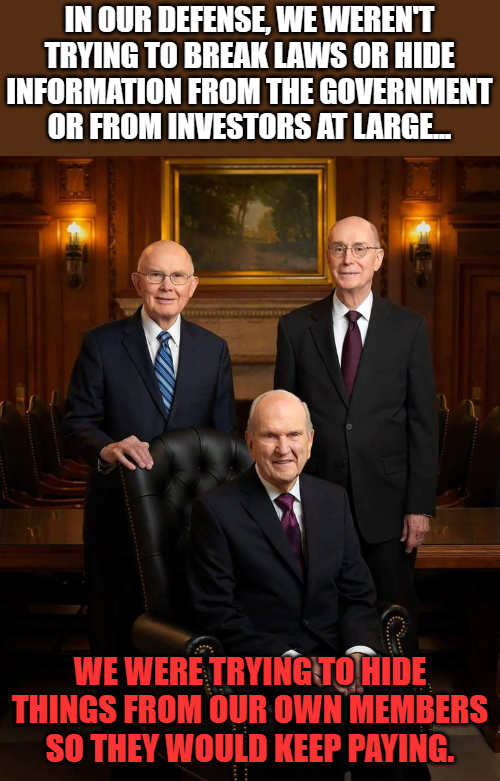
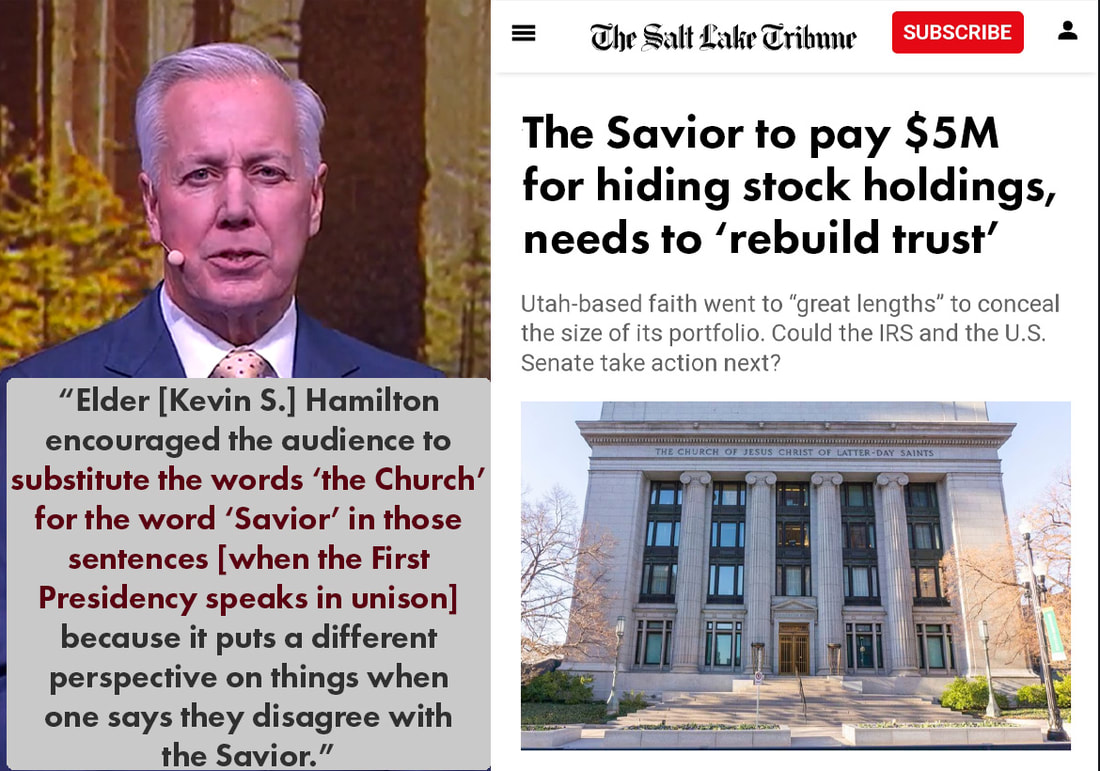
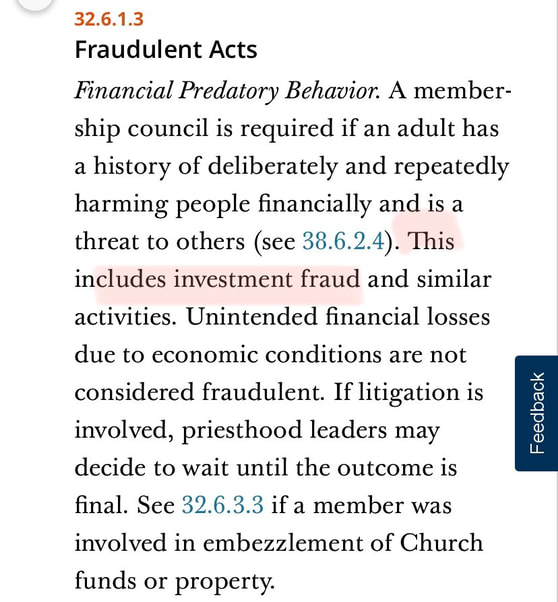




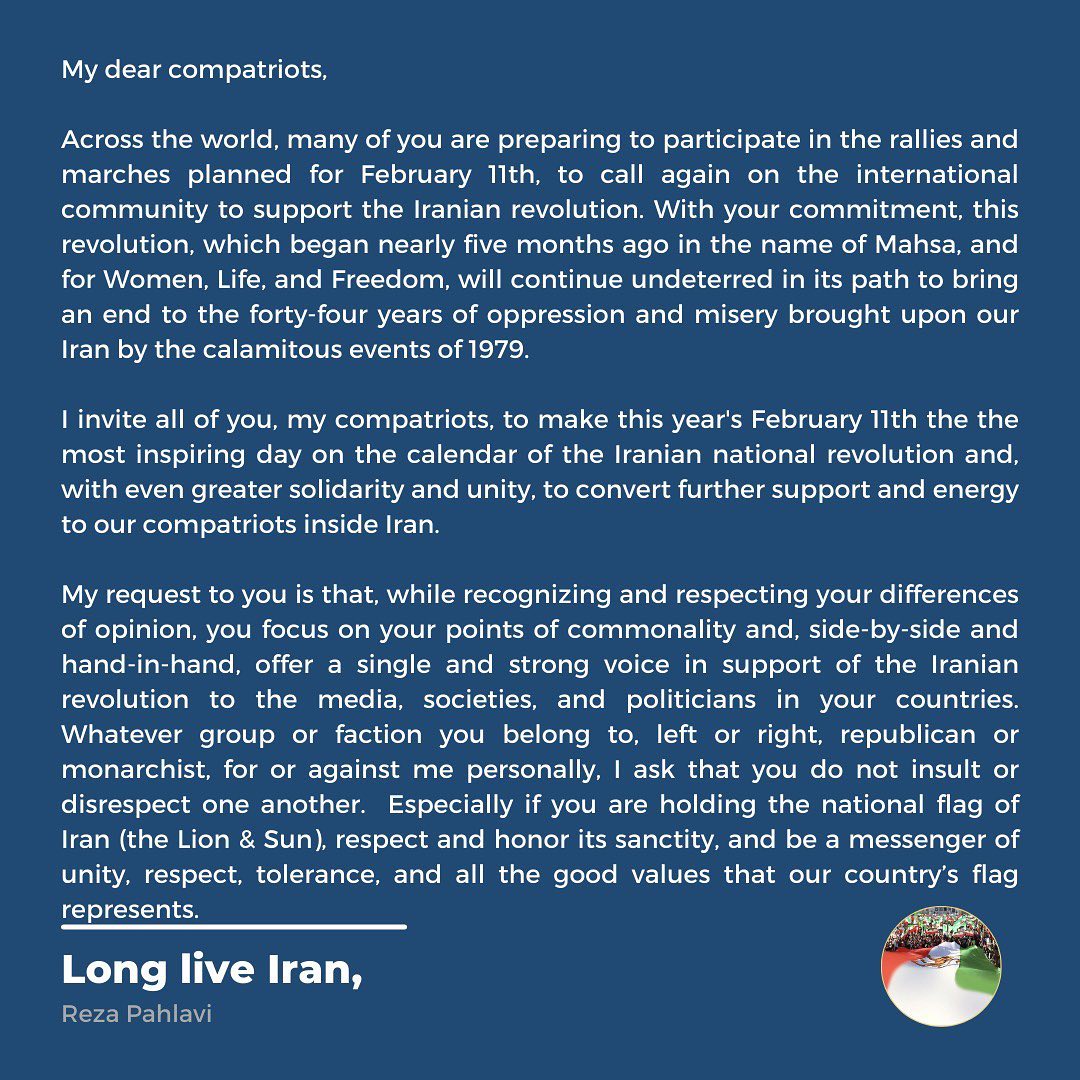
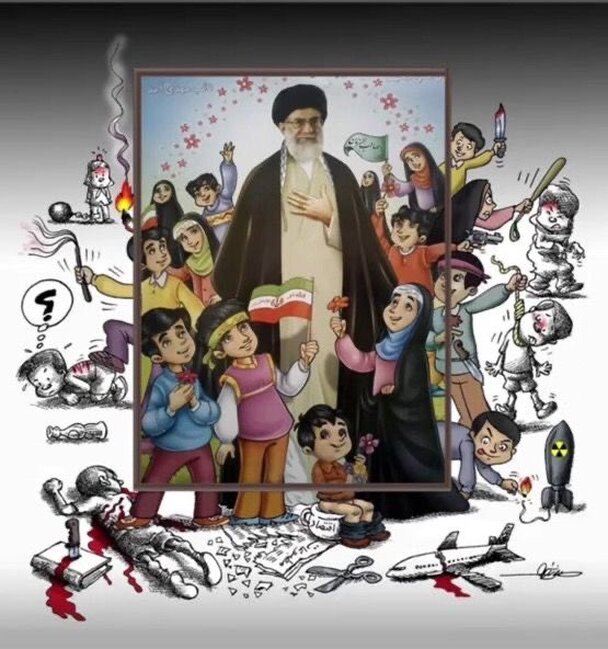


 RSS Feed
RSS Feed
